11 points for a peaceful, just, prosperous and happy multipolar world.
11 points for a peaceful, just, prosperous and happy multipolar world.
The World Association for Political Economy (WAPE) held its 18th annual forum in Türkiye, hosted by Yeditepe University.
The theme of the Forum, held on August 6–8, was “Multipolarity in the 21st Century: Challenges and Opportunities in Political Economy”.
Speakers from across dozens of countries, from South America to West Asia, from Europe to East Asia, delivered presentations and took part in discussions.
Following the sessions, WAPE released a statement.
Concluding with the call “Marxist political economists of the world, unite and work diligently to build a peaceful, just, prosperous, and happy multipolar world!”, the statement addressed issues of the “genocide in Gaza,” “the multipolar world order taking shape,” “the urgent need for groundbreaking theoretical innovations based on Marxism,” “building a community with a shared future for humanity,” “reversing the deepening global polarization of wealth,” “an egalitarian and productively focused international monetary system,” “the ecological emergency,” “the threat of nuclear war,” “the privatization and monopolization of technology,” and “21st-century imperialism, hegemony, neoliberalism, neo-colonialism, and neo-fascism.”
We present the statement to our readers with subheadings added by us.
The World Association for Political Economy (WAPE) is an international academic organization of voluntarily formed by Marxist, Marxian and other critical political economists and related academic groups worldwide. It aims to integrate the study of political economy of our world, the global research forces in Marxist economics, employ the theories and methods and of evolving Marxist economics to study the world economy and national economic development, promote economic and cultural exchanges among the peoples of the world, and enhance their well-being. Since its first forum held in Shanghai, China, in 2006, WAPE has organized over twenty academic conferences in countries such as China, Japan, France, the United States, Mexico, Brazil, Vietnam, South Africa, India, Russia, Germany, Canada, and Greece. In 2025, marking the 20th anniversary of WAPE’s founding, we convened the 18th forum at Yeditepe University in Turkiye. The theme of this conference is “Multipolarity in the 21st Century: Challenges and Opportunities in Political Economy”. After in-depth discussions at this forum, we present the following statements:
The genocide in Gaza
1. The ongoing contemptible televised genocide in Gaza is a standing indictment of contemporary imperialism. It violates the basic postulates and humanity and human society. It is the most egregious instance of the malignant wars instigated by imperialist powers. They hinder human social progress and the improvement of livelihoods. Such wars include the Russia-Ukraine conflict, now in its third year, the recent Iran-Israel conflict, one that could possibly break out in the Korean peninsula, that threatened against liberation forces in the Sahel and the one threatened against China over Taiwan. Such wars not only cause immense loss of life and property in the regions concerned, they inflict more human suffering by causing incalculable damage to international supply chains, productivity, and production relations. Marxist political and geopolitical economists worldwide should strengthen cooperation and conduct in-depth research on significant economic theories and practices related to such imperialist war.
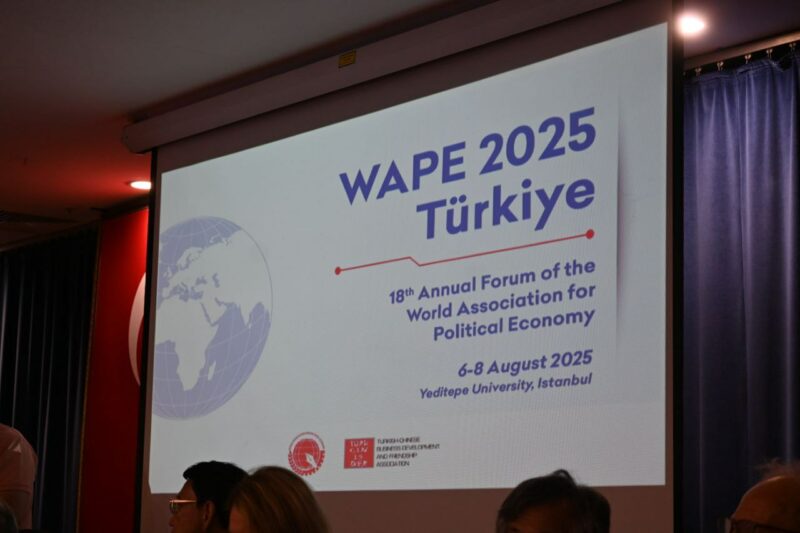
Multipolar world order taking shape
2. This year marks the 80th anniversary of the victory over German-Italian-Japanese fascism and the 80th anniversary of the adoption of the United Nations Charter. The world today is undergoing changes unseen in a century at an accelerated pace. Opposing imperialism and hegemonism in economic, political, cultural, and military fields is critical to world peace, development, and security in the current era. The US’s attempt to create a unipolar world system dominated by it never succeeded and is today in a shambles. A multipolar world order is taking shape instead. It recognizes the historical necessity of human socioeconomic development worldwide through development paths and models based on people’s national conditions.
The urgent need for groundbreaking theoretical innovations based on Marxism
3. The world today is experiencing a new round of scientific and technological revolution, represented by new energy, new materials, digital technology, and artificial intelligence, as well as the sweeping transformation of the global political and economic landscape driven by this revolution. Rather than contributing to this revolution, the imperial world is instead engaged in speculation and disruption, creating uncertainties and instabilities in international political, economic, and social relations. They pose risks and challenges that test the political wisdom of leaders worldwide. As the profound changes unseen in a century accelerate, traditional mainstream theories explaining international political and economic relations increasingly reveal their inherent flaws. There is an urgent need for groundbreaking theoretical innovations, based on Marxism, to guide the new economic and political landscape and achieve the reshaping of the international economic order, as emphasized by the United Nations General Assembly for many years.
Building a community with a shared future for humanity
4. Today, a senile monopoly capitalism is preoccupied with speculation and predatory lending through which to suck out value produced by working people and oppressed and exploited nations. It is incapable of expanding production, let alone doing it in an egalitarian manner that spreads prosperity to working people. Currently, BRICS+ countries and many others opposed to imperialism and hegemonism contribute more to global economic growth than the G7 countries. Building a community with a shared future for humanity signifies a shift in world history from the capitalist paradigm of “control and plunder” to one of “wide consultation, joint contribution, and shared benefit”. Marxist political economists worldwide must grasp this historical trend and make theoretical contributions to reshaping a just and equitable global economic governance system.
Reversing the deepening global polarization of wealth
5. The postwar system of international economic governance system was dominated by the imperialist countries. They ensured that the system led to the continuous flow of international surplus value and profits into the pockets of the private monopoly bourgeoisie in these countries. Today, unable to ensure such flows through the system, the imperialist countries, countries have taken to leveraging technological, financial, and institutional hegemony through sanctions and blocking of trade and capital flows that fail to reinforce their declining imperial power while nevertheless damaging development. To reverse the deepening global polarization of wealth, the developmental rights and interests of Global South countries must be fully respected, supported, and protected.
An egalitarian and productively focused international monetary system
6. The already failing dollar system and its weaponization have severely disrupted normal economic exchanges among nations and harmed the developmental interests of peoples worldwide for decades. Therefore, we call for the reconstruction of a genuinely egalitarian and productively focused international monetary system that better aligns with the development of international productive forces, facilitates universal and equal interactions among nations, and ensures equal development opportunities and shared benefits for all countries and their peoples.
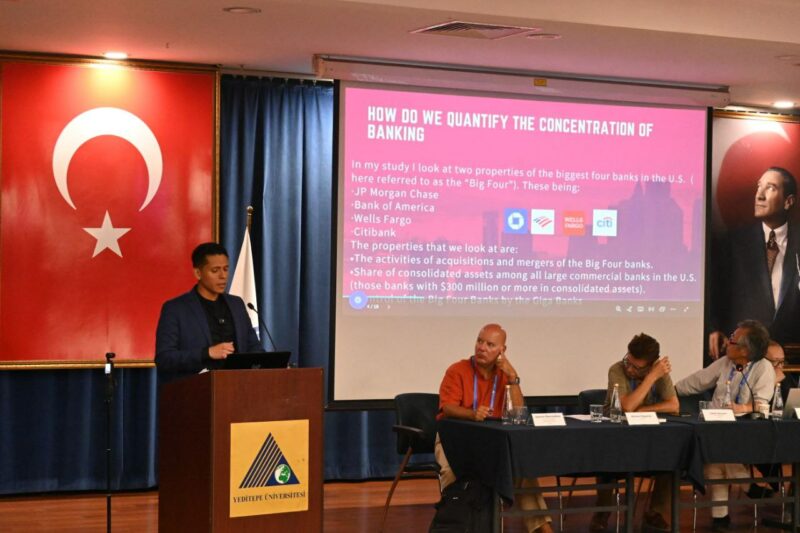
The ecological emergency
7. The ecological emergency composed of pollution, biodiversity loss and climate warming is among the most significant challenges facing humanity today. The international community must work together to transform production methods and jointly forge a path for global ecological civilization. Marxist political economists worldwide should enhance exchanges and cooperation, shoulder the responsibility for the productive transformation necessary to address the ecological emergency, and deepen theoretical and policy research in environmental political economy and resource political economy.
The threat of nuclear war
8. The threat of nuclear war is closer today than ever before. Militarily aggressive imperialist countries, which had already demonstrated their readiness to use nuclear weapons without justification and have used depleted uranium weapons with impunity since, cannot be trusted to refrain from a repeat performance. Marxist and critical political and geopolitical economists worldwide must work on solutions that move the world away from the current balance of terror to build world based on a balance of security, development, environmental sustainability and peace.
The privatization and monopolization of technology
9. The development of digital technology and artificial intelligence has the potential to boost productivity. However, the privatization and monopolization of technology inevitably distorts its development so as to extract surplus value and promote monopoly, threatening employment and the economic rights of the vast majority of laborers. China’s proposal for the Global AI Governance Initiative, advocating wide consultation, joint contribution, and shared benefits, and its call to establish a World AI Cooperation Organization, are highly necessary and beneficial.
21st-century imperialism, hegemony, neoliberalism, neo-colonialism, and neo-fascism
10. The complexity and contradictions of capital movement in the era of increasing multipolarity are manifold. They include contradictions among imperialist nations, between the bourgeoisie of imperialist nations and the working class of developing nations, within imperialist nations between the bourgeoisie and the working class, between imperialist nations and Global South or socialist nations, and between among more and less powerful imperialist nations. These intertwined contradictions significantly increase global instability. Therefore, achieving a just multipolar world requires opposing 21st-century imperialism, hegemonism, neoliberalism, neo-colonialism, and neo-fascism in all their forms.
Marxist political economists of the world, unite!
11. In a multipolar world, it is clear that the ideas that will advance humanity and broaden horizons are independence, public ownership, and populism. It has become clear that Marxism, developed under the needs of the age and each country, will be the founding and liberating ideology of the 21st century. The task before us is to establish a new international organization to institutionalize international cooperation. Drawing on the experiences of past international organizations, we must create a new international organization based on the fundamental dynamics of a multipolar world.
Marxist political economists of the world, unite and work diligently to build a peaceful, just, prosperous, and happy multipolar world!







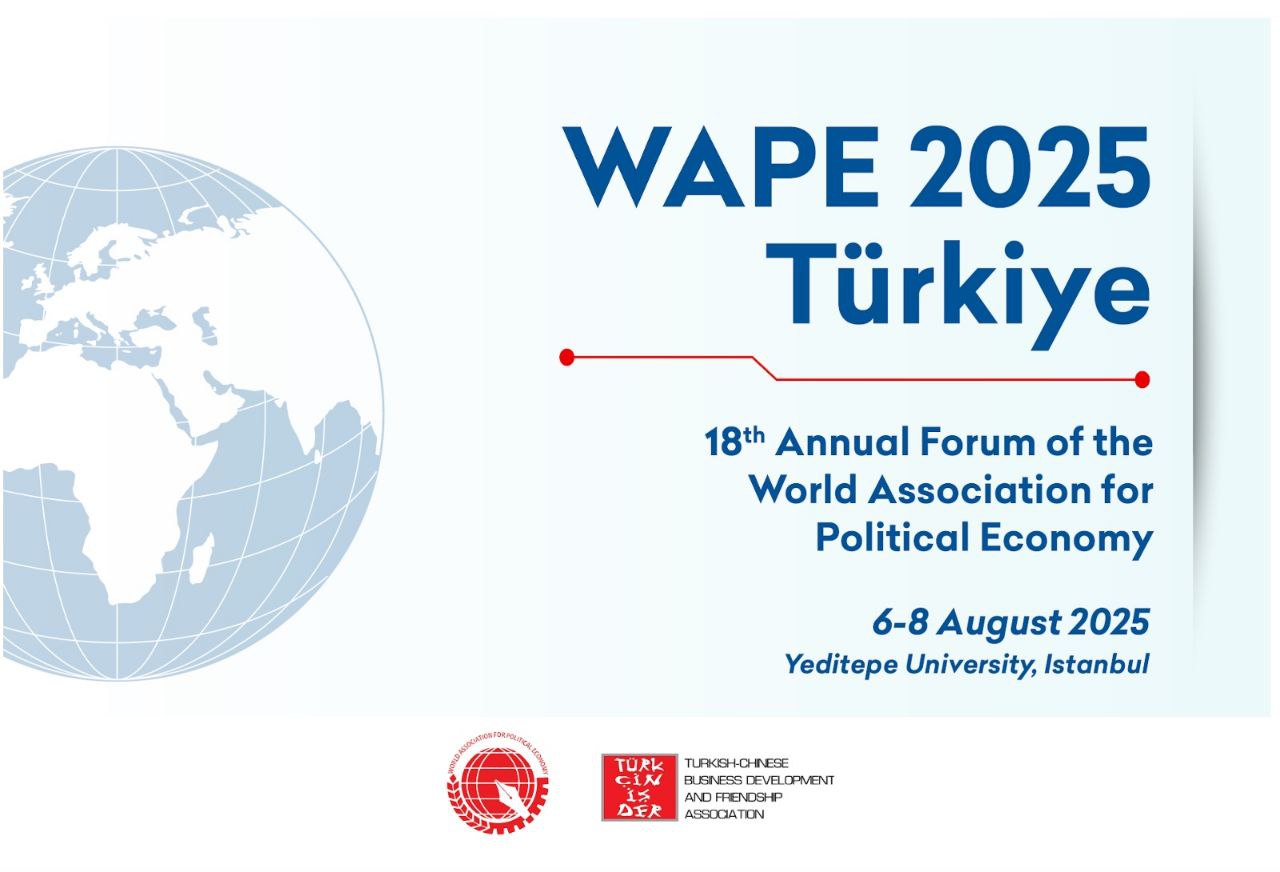




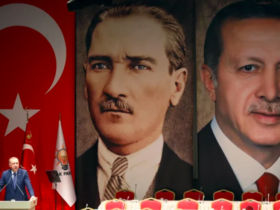
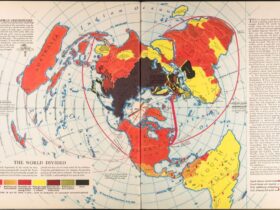



Leave a Reply